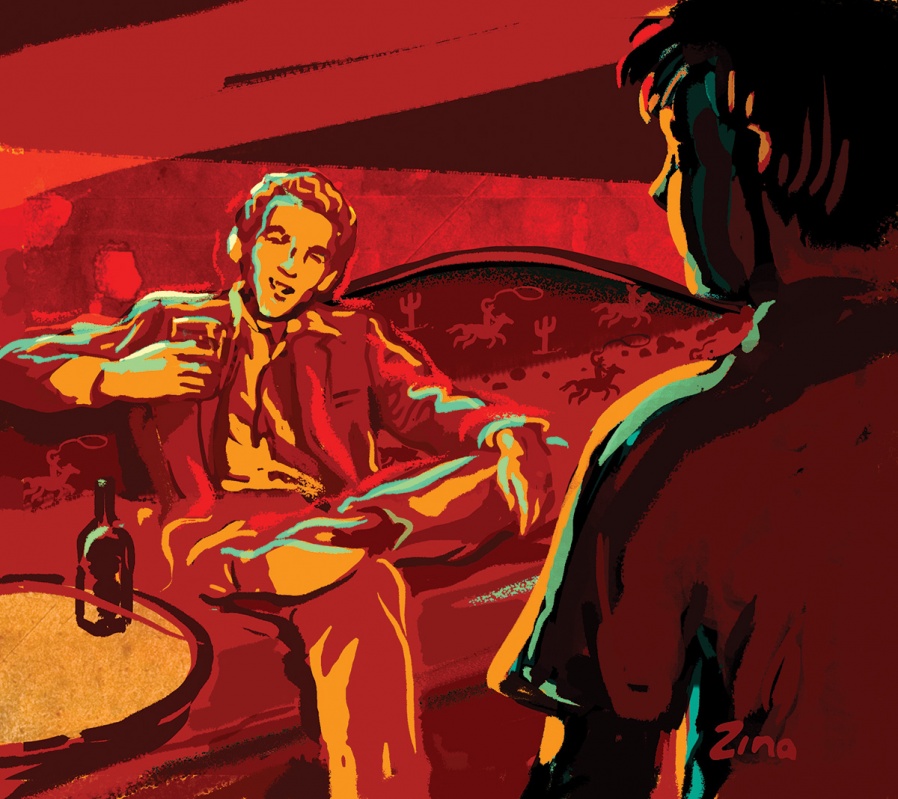Here’s how stuff happens when you’re a teenager: You see a new magazine with a photo of a rock icon on the cover, and you think, “Gimme!” You buy it and read it cover to cover.
In the spirit of making conversation at the supper table, you mention that it’s now possible to write articles about musical performers and get paid for it. Then you add, “That’s what I’m going to do. I’m going to write for Rolling Stone.”
My dad, a copy editor at the Lubbock Avalanche-Journal, knew all about Rolling Stone, or thought he did. A headline he composed a few days prior for a story about Mick Jagger’s arrest read: “Rolling Stone Gathers Grass.” It was one of his favorites.
Editor that he was, Dad came through with a tough question: “Who, in Lubbock, are you going to interview?”
That was a puzzler, but the answer came via my AM car radio that afternoon in an advertisement for the Bigger ’N Dallas nightclub, about a mile from my house.
“Live! And in person! One night only! The Killer! Jerry Lee Lewis!”
So that was it. I would interview the rock ’n’ roll legend and send it to Rolling Stone. Because that’s how it is when you’re a teenager. You say you’re going to write for Rolling Stone; a few days later you’re on the verge of making it happen. A few days after that, you’ve forgotten about the whole thing.
But my dad didn’t forget.
Not only did he approve of my now-forgotten plan but came home one day with news that my interview with Jerry Lee Lewis was “all set up.”
“What interview?”
“The one you’re going to do with Jerry Lee Lewis. For the Rolling Stones.”
“What?”
“I set it up for you. Just go in, tell them who you are, and Jerry Lee will take care of you. And you’re welcome.”
Truth was, I didn’t actually know much about Jerry Lee Lewis except Great Balls of Fire and Whole Lotta Shaking Going On. Heck, he was already a throwback to an earlier time, and he played hard-core country music now. What if Rolling Stone didn’t think Jerry Lee was still cool?
My mom was up on Lewis’ erratic personal life and kept mentioning something about a 13-year-old cousin and a shooting or two. I wasn’t sure this was something anyone wanted to read about. But I kept it in mind.
This would be the third time I’d been inside a nightclub and the first time without my parents. A waitress in a miniskirt greeted me at the door. She asked, “Do you have some ID?”
When I told her I was the reporter who was there to interview Jerry Lee Lewis, she muttered something about merit badges and led me to the back of the club where I spied Jerry Lee Lewis sitting on a leather couch embroidered with colorful cows, cowboys and cacti.
Jerry Lee had been drinking. I should have written down what kind of whiskey he was drinking, but I didn’t notice, not even when he offered me a sip to “settle my nerves.”
The interview started poorly and quickly deteriorated. I asked him why they called him “The Killer,” and he assured me it wasn’t because he ever killed anybody.
When I asked him what he thought about the Beatles, he said, “Ringo’s the only one I’d care to have a drink with.” Then he added, “Don’t put that in your story,” in a way that made me want to comply. The Beatles always said nice things about him, he explained. Wouldn’t be polite to talk bad about them.
Ditto the Rolling Stones. His comments on all the “Bobbys” that ruined rock radio—Bobby Vee, Bobby Vinton and Bobby Rydell—were likewise off the record. He tempered his vitriol toward President Lyndon B. Johnson with the acknowledgment that LBJ had given him the watch he was wearing, and it wouldn’t do to badmouth him in the face of such generosity.
That got us to talking about presidents, and one member of Jerry Lee’s band mentioned that George Washington smoked opium, at which point Jerry Lee jumped up from the couch, assumed a defiant, spread-legged stance, and declared the statement a lie.
A menacing silence followed, broken only when the mild-mannered 16-year-old reporter in the room asked, “So, Mr. Lewis, what do you think of Buddy Holly?” He actually liked Buddy Holly a lot and said so. He lamented not making it by to see Buddy’s momma while he was in Lubbock.
Just when it looked like we were getting somewhere, the interview was over. A man came and told Jerry Lee it was time, and The Killer made his way to the stage and played all the great old songs. And the new ones, too. I watched in amazement—I know that guy!—until the waitress in the miniskirt said it was time for me to go home, reminding me that tomorrow would be a school day.
“Well,” my dad said when I came home smelling like cigarette smoke and stale beer, “at least you didn’t get shot.”
Or stabbed.
Jerry Lee shot his bass player not long after that and reportedly stabbed an interviewer in the neck with a broken whiskey bottle. That interviewer learned the same thing I learned but without the bloodletting: Any interview with Jerry Lee Lewis that you walk away from is a good interview.
——————–
Clay Coppedge, a member of Bartlett EC, lives near Walburg.


